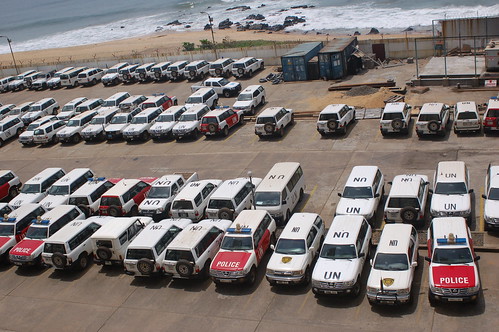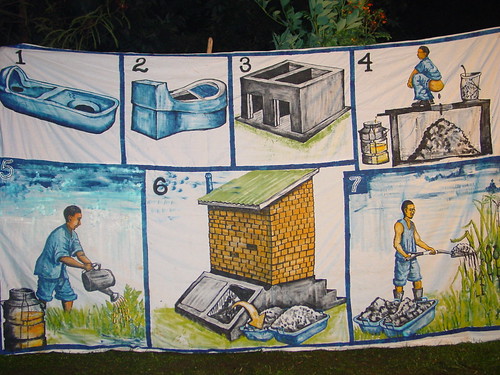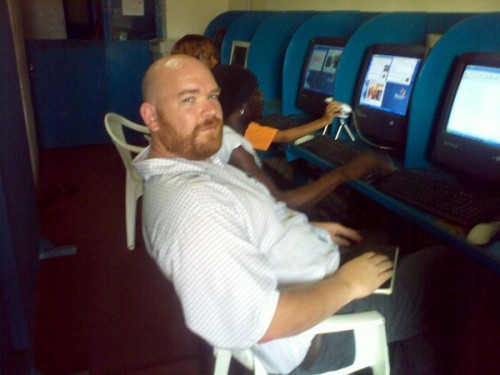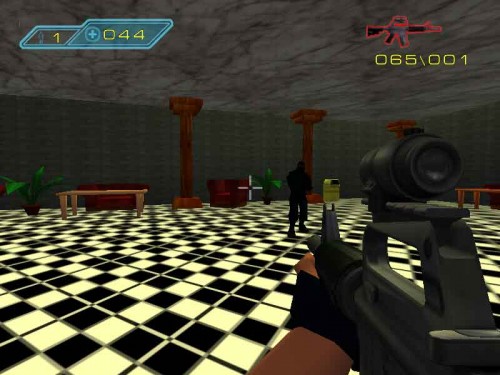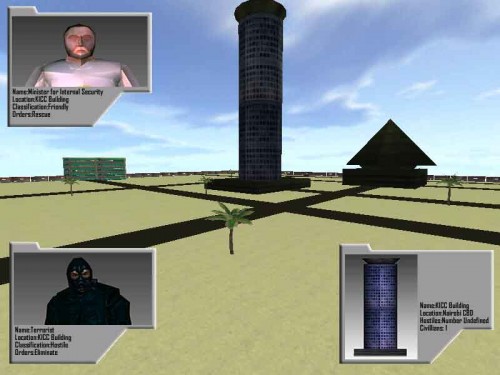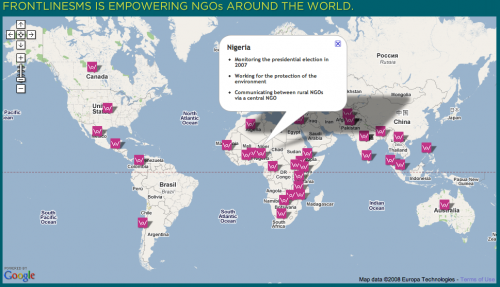I have cognitive dissonance over the term “ICT4D“. The term “ICT4D” is confusing, hypocritical and has a whiff of condescension that makes me cringe.
As I understand it, it’s what NGO’s do in places like Africa and Asia, but if the same things are done in poor communities in the US or Europe, it’s not called ICT4D, it’s called civil society innovation or a disruptive product.
I’ll be the first to say that I think more communications and technology tools in the hands of ordinary people is good, it’s what we need. For this reason I didn’t come down on the OLPC project, not because I agreed with it’s strategy or reason for existing, but because I simply think that getting more computers in kids hands is good idea.
So, let me be clear: I’m not against the practice of getting more ICT into Africa, I’m just don’t appreciate the condescension and hypocrisy that the term ICT4D comes with, and I’ll bring up the reasons that it actually constrains the technology innovation culture in Africa.
What do we really mean by “ICT4D”?
Ken Banks is doing a fun “ICT4D Postcards Project” where he’s asking people who work in that field to send him a picture with a note of why it matters to them. Though a fun project, I hesitated when asked to participate, because I’m particularly put off by the terminology. But, I did one, and here it is:
“ICT4D†represents a mental roadblock. A term that brings as much baggage with it as a sea of white SUVs, representing the humanitarian industrial complex’s foray into the digital world. It means we’re trying to airlift in an infrastructure instead of investing in local technology solutions. Like the SUVs, it’s currently an import culture that will not last beyond the project’s funding and the personnel who parachuted in to do it.
If an ICT4D-type project is done in a poor part of America, is it still considered ICT4D?
That’s the question that sums up the hypocrisy of this term to me more than anything else. Here’s a an example of what I mean, on a project that I really like and am behind: PeaceTXT. It’s using mobile phones and SMS to help with violence interruption in Chicago.
Is that ICT4D? If it was deployed in Johannesburg or Mogadishu it sure would be labeled as such.
Is ICT4D basically branding for emerging market tech? It seems like it’s a way to name interesting and innovative products from Africa and Asia as something different than their counterparts doing the same thing in the West. In the West they’re called a disruptive initiative or civil society product.
If an African company creates a product that gets millions of Africans using technology to communicate better, which seems to be the very definition of ICT4D, are they automatically that? Mxit does that… What are they?
Let’s say you’re Kilimo Salama, run by my friend Rose Goslinga, which is a micro-insurance program designed for Kenyan farmers, and a partnership between Syngenta Foundation, UAP Insurance, and Safaricom. You charge, make money and yet are helping both small and large farmers alike. Is this ICT4D?
A roadblock to African tech
I was recently discussing this term with one of my Kenyan tech friends, where he stated, “I always picture a team from the UN putting up toilets in Uganda when I hear of ICT4D.”
That’s one of the key problems that the ICT4D space, because to an African it comes with all the baggage of 60+ years of failed aid and development work on the continent. It triggers that begging bowl mentality, instantly stripping the dignity away from the initiative.
It also feels like this is how international NGOs are trying to stay relevant, by creating a new department and new initiatives that the big funders will buy into and support (themselves to stay relevant). Ask yourself, how many ICT4D projects in Africa are more than pilot projects? How many are just Westerner organizations parachuting in, which have no hope of staying alive beyond the time and funds put in by their organization? Sounds like the same old “aid story” to me.
That might be annoying, but the actual problem with this is twofold.
First, the African technology startup scene is young, but it’s ready to be treated as a real industry with real investors looking to make real returns. When the people who are doing business and making money in African tech get a sniff of an “ICT4D” project, they immediately dismiss it – labeling it as a special needs project where the regular rules don’t apply.
A startup company who is trying to create value and make money, but doing so with what outsiders view as poor or disadvantaged communities, is often pigeonholed internationally as ICT4D. For instance, is Esoko the money-making agricultural product from Ghana, which is now in a dozen countries, an ICT4D company? How about if a company started off by being used in Africa, but then their product went global – such as with Ushahidi?
Second, the funds and work put into this space by the NGOs are creating a false floor in the economy. They’re undermining the community of tech entrepreneurs who could be building the same products and services and charging for it, just like we’d expect any company in the West to do if there was a valuable service worth paying for. If it’s a service that should be supplied by the government, then they’re short-circuiting those responsibilities and subsidizing actions that subvert the public offices away from their duty.
Let’s say, for arguments sake, that the only way to get a much needed project going is to get a Western team in-country to start it. Is there a reason why ICT4D projects are slow to get local ownership, management and team members? Is this technology tourism and fabricated externally run projects, created because doing work in Africa is an adventure?
In Closing
What I’m hoping to get across is that we’re doing ourselves a disservice with this terminology and that it has a negative perception in the tech startup culture in Africa. Technology is about overcoming inefficiencies in the system, and products succeed because they solve real needs within communities. In Africa, as in the West, some of these solutions are for-profit and some not-for-profit. It’s important to invest in the local startups involved in trying to solve these problems and come at it from a more objective view, instead of labeling innovative technology solutions from Africa automatically as ICT4D.
We have to thinking less of ICT as something that’s about development, and more of it as a commercial venture. We need more focus on ICT4$ than ICT4D.
